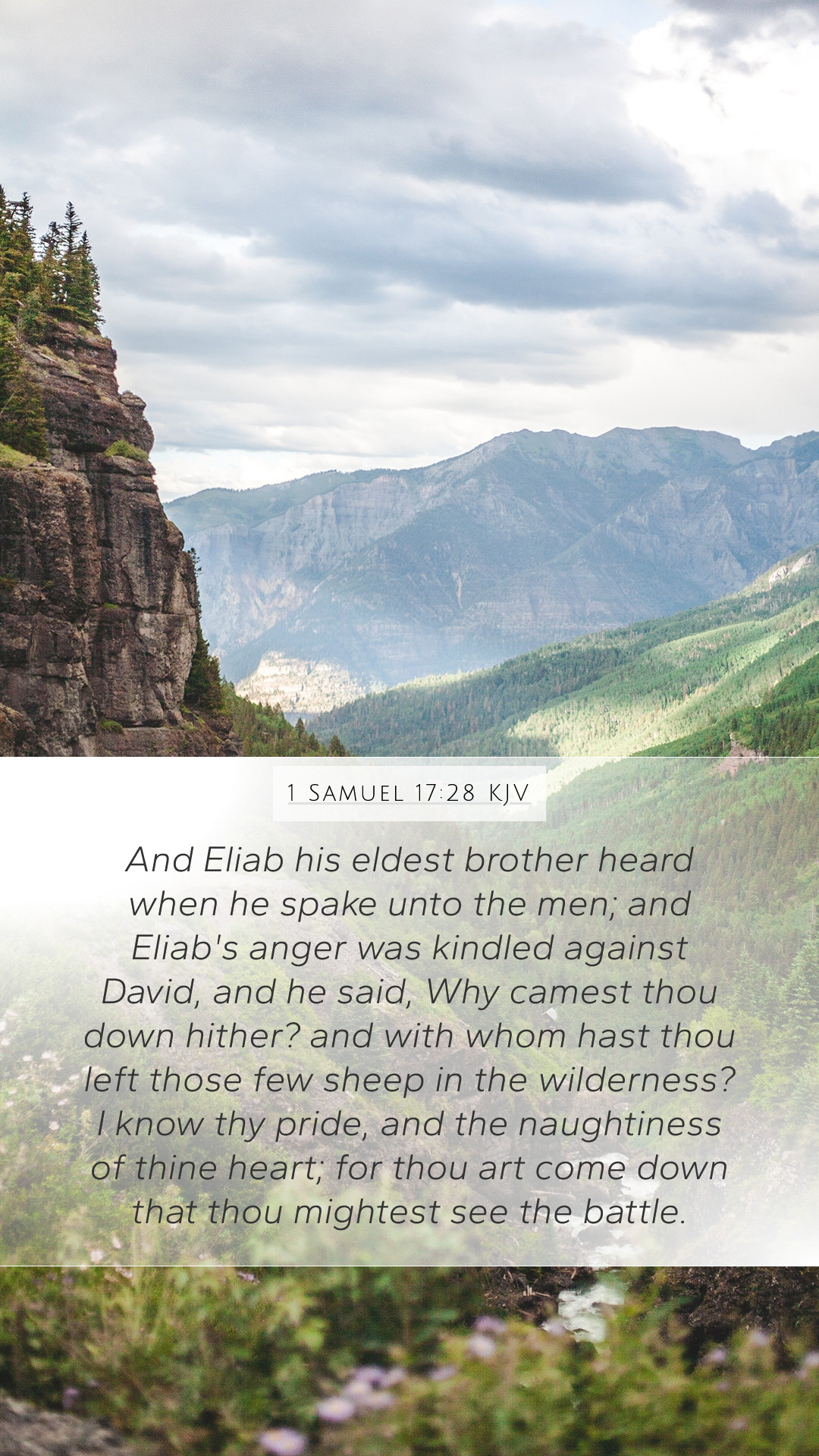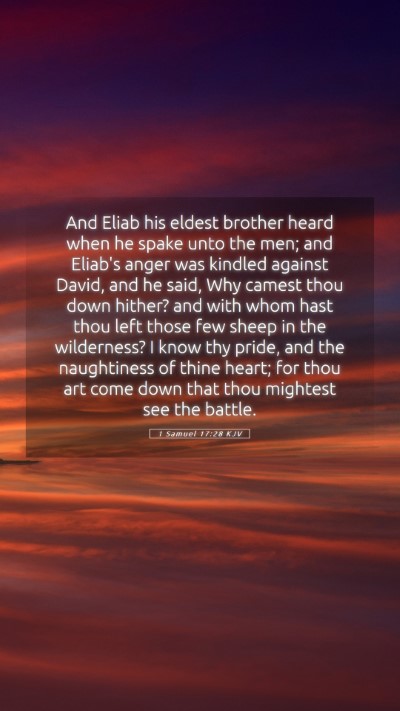Understanding 1 Samuel 17:28
The Bible verse 1 Samuel 17:28 presents a poignant moment in the narrative of David and Goliath. This verse states:
"And Eliab his eldest brother heard when he spake unto the men; and Eliab's anger was kindled against David, and he said, Why camest thou down hither? and with whom hast thou left those few sheep in the wilderness? I know thy pride, and the naughtiness of thine heart; for thou art come down that thou mightest see the battle."
Verse Meaning and Commentary
The insights of various biblical commentaries shed light on this verse, unveiling its deeper meanings and implications.
-
1. Contextual Background
According to Matthew Henry, the context of this verse is crucial for understanding its implications. David, being the youngest of his brothers, was sent to deliver provisions to them during their standoff with the Philistines. Eliab's reaction reveals familial dynamics and the pressure one might face when stepping into a confrontational situation.
-
2. Eliab's Jealousy and Anger
Albert Barnes notes that Eliab's anger towards David stems from a place of jealousy and bitterness. He perceives David’s inquiry into the battle as an act of pride rather than concern for his brothers. Eliab’s accusation not only indicates the tension within the family but also reflects how those in authority can sometimes dismiss or belittle the contributions of those beneath them.
-
3. Misinterpretation of Motives
Adam Clarke emphasizes that Eliab misjudges David's intentions. Rather than coming to boast or provoke, David seeks to understand the situation. This highlights a common theme in Scripture: the misinterpretation of another’s motives based on preconceived notions.
-
4. Theological Insights
The intrinsic themes of pride and humility are evident in this interaction. Matthew Henry suggests that Eliab embodies worldly judgment, his perspective marred by pride. Yet, David exemplifies humility in his willingness to serve and inquire, contrasting with Eliab’s dismissiveness.
-
5. Lessons in Leadership and Conflict
This verse invites reflections on leadership and how conflict arises within groups, especially in high-stress situations. Commenting on this, Albert Barnes indicates that Eliab's reaction serves as a reminder of the importance of supporting one another, particularly among leaders and those they guide.
-
6. Application to Daily Life
Applying this verse to modern life involves recognizing how we may react towards those who seek to challenge or change the status quo. Adam Clarke encourages readers to look beyond initial reactions to others’ actions and seek understanding rather than judgment.
-
7. Family Dynamics and Roles
This verse also opens a discussion about family dynamics, especially the roles and perceptions of siblings in stressful situations, as noted by Matthew Henry. Understanding these dynamics can provide insights into our own family interactions and conflicts.
Cross References
1 Samuel 17:28 can be related to several other biblical passages that explore similar themes:
- 1 Samuel 16:7 - "But the Lord said unto Samuel, Look not on his countenance, or on the height of his stature; because I have refused him: for the Lord seeth not as man seeth; for man looketh on the outward appearance, but the Lord looketh on the heart."
- Proverbs 4:23 - "Keep thy heart with all diligence; for out of it are the issues of life."
- Galatians 6:1 - "Brethren, if a man be overtaken in a fault, ye which are spiritual, restore such an one in the spirit of meekness; considering thyself, lest thou also be tempted."
Conclusion
In summary, 1 Samuel 17:28 serves as a rich source for commentary and biblical exegesis. Through the insights provided by Matthew Henry, Albert Barnes, and Adam Clarke, we gain a broader understanding of familial relationships, the importance of humility, and the nature of conflicts. This verse invites us to reflect on our perceptions and reactions, urging us to seek understanding in the face of misunderstanding.


